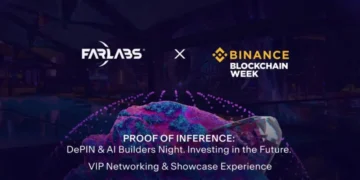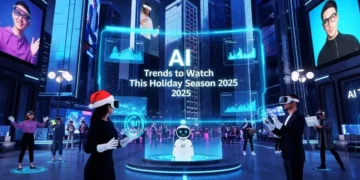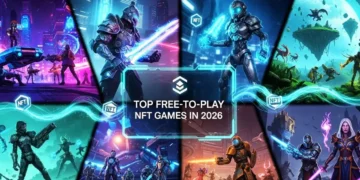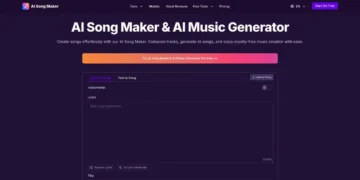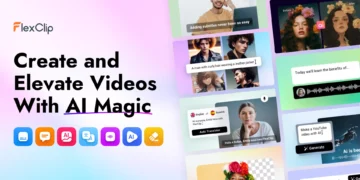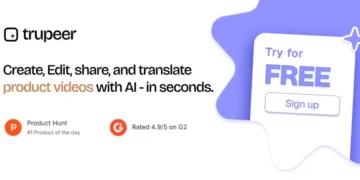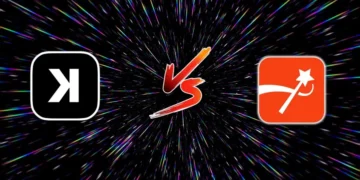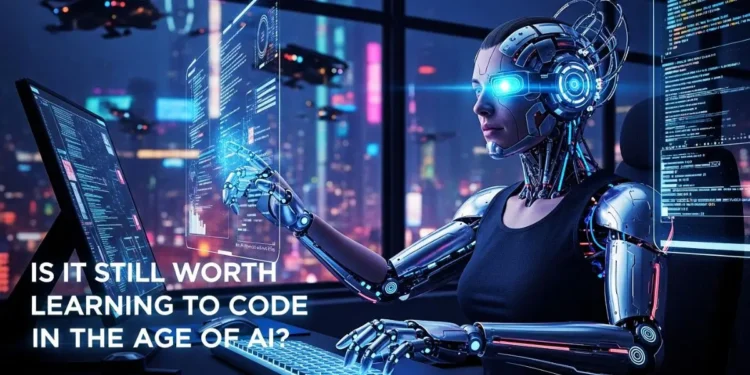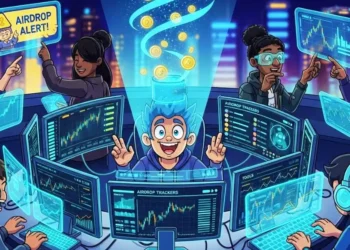You have come across these sorts of news. “Artificial Intelligence codes better than humans!” “Will AI take over programmers’ jobs?” You are inquisitive, determined, and possibly apprehensive at the same time. If you are considering holding a career in tech or maybe just want to upgrade your skills, a bothersome voice in your head still keeps questioning the matter and asks if it is worth learning to code in 2025.
That is a reasonable question. The introduction of very efficient AI helpers such as GitHub Copilot and ChatGPT changes the terrain. There must be various threads on Reddit, such as “Is it worth learning to code with AI reddit”, which show how thousands of would-be developers are plagued by that doubt. They watch AI creating entire functions and ask themselves if the years of hard work still make sense.
Let me clarify from the outset: the question is not whether you should learn but rather how and why. The demand for coding skills is not going away; it is changing. This article is not another opinion piece. We are exploring in-depth market data, expert predictions, and the fundamental change of what being a developer means today. We will talk over the Reddit posts, identify the fear and give you a lucid, feasible plan. So, let’s put an end to the discussion once and for all.
The Rise of AI in Development: By the Numbers
Before talking about the worth of equipping with coding skills, it is necessary first to find out how much Artificial Intelligence (AI) has been incorporated in the development workflow. The rates at which the developers adapt to AI tools are downright phenomenal. The Stack Overflow 2025 Developer Survey, shows that as many as 80% of developers have incorporated AI tools in their workflows. What used to be merely a novelty has now become a standard for many developers.
Still, the faith in AI tools hasn’t kept pace with the enthusiasm of the users. The same survey indicates that trust in the accuracy of AI has actually decreased from 40% in previous years to 29% in 2025. The main reason behind this discrepancy is that developers have been confronting the limitations of their AI assistants.
The top-most irritation, “AI solutions that are almost right, but not quite,” was pointed out by 45% of the respondents. The “almost right” code normally results in making the debugging process more time-consuming and thus less efficient. To be exact, 66% of developers say that they have to spend more time than they would like, fixing AI-generated code that is almost—but not quite—correct.
Therefore, although the AI tools have been wildly embraced and adopted, the developers’ relationship with their AI assistants is still a bit of a puzzle, which is the topic of this article.
The New Reality: Coding as a Human-AI Collaboration
Jensen Huang, the CEO of Nvidia, once said in a tweet that the goal of technology should be to “no one has to” program. Although this could be interpreted as a negative thing for coding, the truth is much more complex. The scope of “programming” is being redefined. It is no longer solely about the writing of the correct code in Python or JavaScript; it involves thinking architecturally, solving problems creatively, and designing systems strategically.
In this new era, AI tools such as GitHub Copilot and Google’s Jules are not your competitors but your collaborators. They serve as extremely helpful assistants that do not get tired and thus can greatly increase developer productivity by taking over the most repetitive and drudgery tasks. Imagine that:
Generating boilerplate code for a new project.
Automating software testing and refactoring.
Detecting bugs and suggesting fixes in real-time.
Research indicates that developers who employ AI assistants are the ones who save time and have good quality code. This gives a developer more space in his/her brain to tackle the issues that really matter i.e. the architecture, the user experience, and the groundbreaking features that solve real-world problems. The human developer, as the CEO of GitHub described it, is turning into the “conductor of an A.I.-enhanced orchestra,” who, by leading, is able to achieve great things with the aid of the powerful tools.
Why Fundamentals Still Matter: The Irreplaceable Human Element
While AI can write code, it cannot think in the way a human can. It operates on patterns and probabilities, but it lacks genuine understanding, context, and creative intuition. This is where human programmers remain absolutely essential.
Beyond Syntax: Problem-Solving and Critical Thinking
Coding is fundamentally an exhausting but rewarding logical, structural, and critical thinking exercise. It basically teaches you skills of breaking down huge and unclear problems into small and solvable steps – something which can be used in any other field apart from programming. AI is a very good tool but it still needs a guiding hand. It is very good at answering “how” questions but finds it difficult to answer “why” ones.
Imagine trying to explain a complicated and abstract idea to someone who only understands literal commands. This is the way that AI works. A clever programmer is the one who sees the big picture, gives the plans, and is the out-of-the-box thinker which is necessary for building really innovative solutions.
The Power of Human Oversight: Context, Ethics, and Security
AI-generated code can look perfect on the surface but hide significant flaws. AI models don’t understand your business goals, the ethical implications of your software, or the subtle nuances of your existing codebase. This is where human oversight becomes non-negotiable.
Relying blindly on AI can introduce serious risks, including:
Code Reliability: AI can produce code with subtle bugs or inefficiencies that only a trained eye can spot.
Security Vulnerabilities: Models trained on vast public datasets might inadvertently replicate common security flaws, creating backdoors for exploits.
Technical Debt: Quick fixes from AI can lead to poorly structured code that becomes a maintenance nightmare down the line.
Ultimately, a human must be accountable for the final product. A developer with a deep understanding of programming fundamentals is needed to review, debug, and validate what the AI produces, ensuring the code is not only functional but also secure, efficient, and aligned with strategic goals.
The Surprising Productivity Findings: When AI Slows You Down
If you assume that AI automatically makes developers more productive, prepare for a surprise. A groundbreaking 2025 randomized controlled trial studying experienced open-source developers yielded counterintuitive results: when developers used AI tools, they took 19% longer to complete tasks compared to working without AI assistance .
This finding becomes even more fascinating when contrasted with developer expectations. The same developers had predicted that AI would speed them up by 24%—a stark contrast to the actual slowdown they experienced . Even after seeing the results, developers still believed AI had helped them, illustrating a significant gap between perception and reality.
Why does this happen? The researchers identified several key factors:
Time spent evaluating and correcting AI suggestions: What looks like a time-saver often requires careful scrutiny
The overhead of prompt engineering: Crafting effective prompts and iterating on responses takes time
Integration challenges: Fitting AI-generated code into existing architectures and quality standards
Cognitive load: Context-switching between programming and “AI whispering”
This doesn’t mean AI tools are useless—far from it. But it does suggest that their value might be more nuanced than simple time savings, especially for complex tasks in established codebases.
The Shifting Job Market: Junior vs. Senior Roles
TThe changes caused by AI to programming jobs are not the same for different levels of experience. To understand the difference is very important for a person who is planning to enter this field. A research by Stanford Digital Economy Lab has brought to light that the number of software developers aged 22-25 has dropped by almost 20% from the peak in late 2022.
On the other hand, the number of workers aged 35-49 has gone up by 9% in the same period. So, the data tells us that AI is currently responsible for a significant number of entry-level job losses, whereas experienced developers are still very much sought after.
Wherefore is it so? AI tools are very good in performing tasks that have clear and repetitive patterns—these are basically the tasks of junior developers which the AI tools take over. Making architectural decisions, designing systems, and grasping the business side of things are still very difficult for AI. Consequently, some people refer to the situation as the career ladder with the “missing bottom rung,” which means that it is more difficult for newcomers to get their first position in the industry.
Nevertheless, it does not imply that there is no way forward. It only means that the way has been changed. We may find out by looking at the new way what it is like.
The AI Disruption: Partner or Replacement?
The anxiety is understandable. When an AI can spit out a Python script in seconds, it’s easy to feel obsolete before you even begin. But this perspective misses the bigger picture. To understand the future, we need to move beyond the binary thinking of “human vs. machine.”
What AI Coding Assistants Actually Do (And What They Don’t)
AI coding tools are brilliant accelerators. They are pattern-matching machines trained on vast repositories of existing code. Their core strength lies in:
Automating repetitive tasks (boilerplate code, standard API calls).
Suggesting code completions and functions.
Helping with debugging and documentation.
However, they have critical weaknesses. They lack true understanding. They can’t grasp the nuanced “why” behind a business problem. They can’t architect a complex, novel system from scratch, negotiate with stakeholders, or make strategic trade-offs between technical debt and speed to market.
Think of it this way: a power drill didn’t replace carpenters; it made them more efficient and allowed them to focus on complex joinery and design. Similarly, AI is a power tool for the modern developer.
Will AI Replace Coders by 2040 or 2030? Let’s Look at the Data.
The short answer is no, but the job description will evolve dramatically. A comprehensive study by GitHub itself (an external link to a reliable source) found that developers using AI assistants were 55% faster. This doesn’t mean 55% fewer developers; it means 55% more productivity, which can lead to more ambitious projects and, consequently, more jobs.
Regarding those exact inquiries “Will AI replace programmers by 2030?” or “Will AI replace coders by 2040?”, experts of the caliber of MIT Technology Review say that AI will be used to automate some programming tasks at the junior level, but the need for people capable of solving problems at a higher level – the ones who can create, plan, and oversee AI systems – will increase exponentially. The point is that the roles are changing, not disappearing.
Beyond the Hype: The Unshakeable Value of Learning to Code Today
So, why should you invest your time and energy? Because the core skills you develop when you learn to code are becoming more valuable, not less.
The Shift from “Writing Code” to “Solving Problems”
The fundamental value of a developer was never just typing syntax. It was always about using logic to solve problems. In the age of AI, this is more true than ever. The developer’s role is shifting from a “coder” to a “conductor” or an “architect.”
Your primary function will be:
Defining the Problem: Understanding a complex business or user need and breaking it down into solvable chunks.
Designing the Solution: Creating the blueprint and system architecture that an AI can then help implement.
Curating and Directing AI Output: Reviewing, correcting, and refining the code generated by AI. This requires a deep understanding to spot errors, security vulnerabilities, or inefficiencies.
Integrating Systems: Weaving together various services, APIs, and data sources into a cohesive whole.
As one insightful Redditor put it in a thread about “Is learning coding worth it Reddit“, “AI is great at giving you a block of code, but it’s terrible at knowing which block the entire house needs.”
The Proof is in the Paycheck: Are Developers Needed?
The market demand speaks for itself. Despite the AI boom, the U.S. Bureau of Labor Statistics still projects a 25% growth for software developers, quality assurance analysts, and testers from 2022 to 2032—a rate much faster than the average for all occupations. Companies aren’t firing their engineering teams; they’re arming them with AI tools to do more.
Have you ever wondered, “Are developers needed in the age of AI?” The data resoundingly says yes. The nature of the work is what’s changing, becoming more strategic and less manual.
A Deep Dive: Is It Worth Learning Python in 2025?
Among all programming languages, one question comes up more than any other: “Is it worth learning Python in 2025?” Let’s break it down.
Why Python Remains a Top Contender
Python’s popularity isn’t accidental. Its simple, readable syntax makes it the perfect first language, and its powerful libraries make it a lifetime tool for professionals. In the context of AI, its position is almost unassailable.
The Language of AI and Data Science: Frameworks like TensorFlow, PyTorch, and Scikit-learn are built with Python in mind. If you want to work in machine learning, AI, or data analysis, Python is not just recommended; it’s essential.
Versatility: From web development (Django, Flask) to automation, scripting, and scientific computing, Python’s applications are vast. This makes a Python developer highly adaptable.
Strong Community and Ecosystem: Any problem you encounter has likely been solved and documented, making the learning journey smoother.
A search for “Is it worth learning python with ai reddit” will show you countless data scientists and ML engineers affirming that Python is the lingua franca of their field. It’s the bridge between conceptual AI models and their practical implementation.
The Verdict on Python
Is it worth learning Python in 2025? Absolutely. It provides the foundational thinking for programming and places you squarely in the center of the most exciting technological advancements of our time, especially AI.
The Human Edge: Skills That AI Can’t Replicate (Yet)
This is the core of the argument. Your value as a future developer will be defined by the skills that AI lacks.
Critical Thinking and System Architecture
An AI can write a function to connect to a database. It cannot decide which database to use (SQL vs. NoSQL), how to structure the data for optimal performance, or how to design the overall system to scale to millions of users. This high-level, abstract thinking is a deeply human skill.
Creativity and Ethical Judgment
Can an AI invent a new algorithm? Perhaps. Can it understand the ethical implications of that algorithm if it inadvertently discriminates against a certain demographic? No. The human developer provides the moral and creative compass, asking “Should we build this?” and “How can we build this better for everyone?”
Communication and Empathy
Coding with AI doesn’t happen in a vacuum. Developers must communicate with non-technical team members, understand user pain points through empathy, and translate vague requirements into precise technical specifications. This human-to-human interaction is irreplaceable.
What do you think is the most challenging part of communicating a technical idea to a non-technical person?
Why Learning to Code Still Matters: The Human Edge
In a world of advanced AI coding assistants, the value of learning to program has shifted—but it hasn’t disappeared. Here’s why developing genuine coding skills remains crucial:
AI Can’t Fix What You Don’t Understand
One Reddit user gave a very insightful piece of advice: “Don’t use LLMs until you learn to code. Once you understand the output, then you can use it”. This could be the most significant principle for developers who are willing to work with AI in the future. AI is a great helper, but if you have not learned to code at all, then it becomes a misleading help. You won’t be able to tell when it is incorrect, when it is simplifying, or when it is totally making up solutions.
Consider this question: would you trust a carpenter who doesn’t know how to use a hammer, but has the most expensive nail gun in the market? Most likely, no. The tool is only as effective as the person who uses it.
Programming Teaches Problem-Solving, Not Just Syntax
The real value of learning to code has never been about memorizing syntax—it’s about developing computational thinking skills. When you learn programming, you’re learning how to:
Break complex problems into manageable pieces
Think logically and systematically
Debug and iterate on solutions
Understand systems and architecture
These skills remain valuable even as tools evolve. As one educator noted, “Prompt engineering is not programming. Sure, writing good prompts is useful. But problem-solving, critical thinking, and architecture—the core of coding—still belong to you” .
The Best Developers Are AI-Augmented, Not AI-Replaced
The secret that top developers have figured out is: after you have programming skills, AI turns out to be a kind of magic. Your work flows quicker with prototyping, test cases are easily generated, refactoring is done cleanly, and you can even look at different implementations. But this strength only becomes available to you when you have the basic knowledge to steer, rectify and expand AI help.
The Stanford investigation that we referred to, also, is in line with this opinion: the number of entry-level job openings has decreased after the arrival of ChatGPT, but only for “average” performers. People with high performance level – those who understand the logic and the structure and are able to give the right input to AI – are still getting the jobs.
What to Learn in 2025: Skills That Still Matter
The programming fundamentals remain surprisingly resilient despite AI advancements. Here are the skills that continue to deliver value:
Foundational Programming Concepts
Don’t skip the basics in favor of flashy AI tools. These core concepts remain essential:
Data structures and algorithms: Understanding how to efficiently store and process data
System design: Architecting scalable, maintainable software systems
Debugging techniques: Methodically identifying and fixing issues in code
Version control: Using Git for collaboration and code management
Testing principles: Creating reliable, robust software through verification
Valuable Programming Languages
While AI can work with any programming language, some remain particularly valuable in the current landscape:
Python: Usage is up 7 percentage points, driven by its role in AI development and infrastructure
Rust and Go: Both languages have grown in popularity (+2 percentage points each) due to their performance characteristics and use in systems programming
JavaScript/TypeScript: Still essential for web development across both frontend and backend
SQL: Remains crucial for working with databases in an increasingly data-driven world
AI Literacy and Collaboration Skills
Beyond traditional programming, today’s developers need new skills related to working effectively with AI:
Prompt engineering for developers: Crafting effective prompts that generate useful code
AI tool evaluation: Assessing when and how to use different AI coding assistants
Code review for AI-generated code: Critically examining AI suggestions for quality, security, and efficiency
Testing AI output: Developing strategies to verify code from non-human sources
The New Essential Skills: Beyond Pure Coding
As AI handles more routine coding tasks, other skills become increasingly valuable for developers:
Domain Expertise and Specialization
While AI can generate code, it struggles to understand specific business contexts, user needs, and industry requirements. Developers with deep knowledge in particular domains—whether healthcare, finance, gaming, or education—bring irreplaceable value. They can make architectural decisions that align with business goals and user needs in ways AI cannot.
As one game development educator explained, “Games aren’t just code. Games are systems, games are interactivity, games are a feeling… An AI cannot feel if the moment you just created is intuitive, fun, or meaningful” .
Communication and Collaboration
With AI handling more implementation details, human developers spend more time on higher-level activities: understanding requirements, designing systems, explaining technical concepts to non-technical stakeholders, and making strategic decisions. These activities require strong communication skills—the ability to listen, explain, persuade, and collaborate effectively.
Critical Thinking and AI Assessment
The Stack Overflow survey revealed that when the stakes are high, 75% of developers would still ask another person for help when they don’t trust AI’s answers . This highlights the growing importance of critical assessment skills—the ability to evaluate AI suggestions, identify potential issues, and make judgment calls about when to trust (and when to verify) AI output.
How to Learn Coding in the AI Era: Future-Proof Strategies
The approach to learning programming has evolved alongside the tools. Here’s how to structure your education for long-term success:
Learn Fundamentals First, Then Add AI
Resist the temptation to start with AI tools. Begin by building a solid foundation through:
Hands-on practice with fundamental concepts: Write code from scratch without AI assistance to build deep understanding
Project-based learning: Build complete applications to understand how different pieces fit together
Debugging practice: Develop your problem-solving skills by fixing real issues
Code review: Learn to read and critique others’ code—and have yours reviewed
Once you have these fundamentals, gradually introduce AI tools into your workflow as productivity enhancers rather than crutches.
Choose Learning Paths With AI Integration
Forward-thinking educational programs have evolved to incorporate AI rather than ignore it. When selecting a coding bootcamp or course, look for those that:
Teach how to use AI tools professionally and effectively
Include AI ethics and responsible development practices
Focus on conceptual understanding rather than rote syntax
Emphasize project work and portfolio development
As one bootcamp description explains, they teach students to “use AI in a way that is reflective of how real-world tasks are approached in the industry, while still building the core skills of the profession” .
Build a Portfolio, Not Just a Skill Set
In a competitive job market, demonstrating your skills through tangible projects becomes increasingly important. Focus on building a portfolio that shows:
Complete, functional applications: Not just code snippets but working software
Problem-solving ability: Projects that solve real problems or address genuine needs
AI collaboration: Examples of how you effectively work with AI tools
Learning and growth: Progression in your skills and capabilities over time
The Future of Coding Careers: Evolution, Not Extinction
As we look ahead, it’s clear that developer roles will continue evolving rather than disappearing. Here’s what the future likely holds:
The Rise of the “AI-Augmented Developer”
The most successful developers won’t be those who avoid AI, but those who learn to harness it effectively. They’ll work as partners with AI systems—providing direction, context, and quality control while AI handles implementation details. This collaboration has the potential to create higher-quality software faster, but it requires developers who understand both the technical and human aspects of this partnership.
Continued Demand for Specialized Roles
While general programming tasks may become more automated, specialized roles continue to grow in importance. Developers with expertise in areas like:
AI ethics and safety: Ensuring responsible development and deployment
Cybersecurity: Protecting systems in an increasingly complex threat landscape
Data engineering: Managing and processing large-scale data systems
DevOps and platform engineering: Supporting development workflows and infrastructure
These specialized roles require deep knowledge that goes beyond what current AI systems can provide.
The Changing Nature of Entry-Level Roles
The path into the industry may look different, with fewer positions focused solely on implementing specifications and more roles that combine technical skills with other capabilities like:
AI training and refinement: Curating datasets and fine-tuning models for specific domains
Technical product management: Bridging technical and business perspectives
Developer advocacy: Communicating about technology and supporting developer communities
Your Action Plan: How to Learn Coding Effectively in the AI Era
Convinced it’s worth it? Great! Here’s how to approach your learning journey with AI as your partner from day one.
1. Start with the Fundamentals, Not the Frameworks
It’s tempting to jump straight into building AI apps. Resist it. A strong foundation in programming fundamentals—variables, data structures, algorithms, and logic—is non-negotiable. This core understanding is what will allow you to effectively direct and correct AI. Without it, you won’t know if the AI’s output is brilliant or broken.
2. Embrace “Prompt Engineering for Code”
This is the new essential skill. Learning how to communicate your requirements to an AI is paramount. Instead of writing code line-by-line, you’ll learn to write precise prompts like:
“Write a Python function to validate an email address using regex, including error handling for invalid formats.”
“Optimize this JavaScript function for better performance; it’s currently running in O(n²) time.”
This shifts your focus from syntax to specification.
3. Build Projects, Not Just Tutorials
The best way to learn is by doing. Use AI to help you, but take the driver’s seat.
Project Idea: Build a personal budget tracker.
Your Role: Design the features, the data flow, and the user interface.
AI’s Role: Help you write the specific functions for calculating totals, storing data, or generating charts.
This hands-on experience is what employers and real-world projects demand. It’s the ultimate answer to “Is learning to code still worth it in 2025?”—you learn by creating tangible value.
Conclusion
Is it still worth coding? The response is a definite, absolute yes. However, the “code” itself is not really the final point any longer; rather, it is the tool. The objective is to become an outstanding problem-solver, a digital architect, and the ethical compass for the use of powerful technologies.
The question “should I learn to code in the age of AI” is comparable to asking if one should learn math when calculators are available. The calculator performs the operation, thus liberating your mind for the complex, abstract thinking that is of real importance.
The path to becoming a programmer nowadays is more thrilling than ever. You are endowed with a potent co-pilot. Your ability is not limited by your speed of typing but is rather increased by your intellect, creativity, and strategic vision.
Want to embark on your journey? The most appropriate time to plant a tree was 20 years ago. The second-best time is now. I invite you to drop your ideas or questions here if it were the first project to build with an AI assistant; what would it be?
Frequently Asked Questions (FAQs)
Is it still worth learning to code in the age of AI?
Yes, absolutely. While AI automates the writing of routine code, it increases the demand for developers who can solve complex problems, design system architectures, and direct AI tools effectively. The value has shifted from writing code to engineering solutions.
What is worth learning in the age of AI?
Beyond specific programming languages like Python, focus on developing high-value skills that AI cannot replicate. This includes:
Critical thinking and complex problem-solving
System architecture and design
Project management and communication
Understanding ethics and bias in technology
The ability to learn and adapt quickly (meta-learning)
Did Joe Biden say “learn to code”?
This phrase is often misattributed and originates from a different context. It was not part of a major policy statement by the Biden administration regarding the tech industry. The advice “learn to code” has been circulating online for years, often in discussions about career transitioning.
Will AI replace coders by 2040?
Most evidence and expert analysis suggest that AI will not fully replace human coders by 2040. Instead, it will transform the role, automating repetitive tasks and allowing developers to focus on more creative, strategic, and complex aspects of software creation. The job market will evolve, not disappear.
What is the 30% rule in AI?
While not a formal, universally agreed-upon rule, the “30% rule” in AI often refers to the idea that AI tools can currently automate about 30% of a developer’s tasks, primarily those involving boilerplate code, debugging, and documentation. This figure is expected to grow, but the remaining 70%—involving design, strategy, and innovation—is where human developers will continue to provide immense value.
Is it still worth it to learn coding in 2025?
Yes, learning to code in 2025 is still a highly valuable investment. The key is to learn with AI in mind, focusing on foundational concepts and the “why” behind the code, not just the “how.” This prepares you for a career as a conductor of technology, not just a coder.
Are developers needed in the age of AI?
Yes, developers are not only needed but are becoming more critical. As businesses in every industry undergo digital transformation and integrate AI, the need for skilled professionals to build, maintain, and ethically guide these systems is greater than ever.
Is coding going to be replaced by AI?
No, coding as an activity is not being replaced. The tools for coding are evolving. Just as compilers and IDEs changed development in the past, AI is the next step in that evolution. The human role is shifting from writing every line to orchestrating and overseeing the creation of software.
Is learning languages still worth it in the age of AI?
“Learning languages” can refer to human languages or programming languages. For programming languages, yes, it is absolutely still worth it, as they are the medium through which we instruct computers and AI. For human languages, AI translation is excellent, but the cultural nuance, empathy, and deep understanding gained from learning a human language remain uniquely valuable skills.
Will AI replace programmers by 2030?
It is highly unlikely that AI will replace programmers by 2030. While AI will continue to automate more tasks, the role of a programmer will have evolved into something more strategic. The demand for software is growing faster than AI can automate the roles that create it.
Is it worth learning to code in the age of AI?
This is the central question, and the answer is a definitive yes. Learning to code equips you with a foundational understanding of logic and systems, making you literate in the language of the future. It empowers you to build, control, and innovate with technology, with AI as your powerful ally.
Is coding still needed with AI?
Yes, coding is still the fundamental mechanism that tells computers and AI what to do. AI can generate code, but it still requires human direction, oversight, and integration into larger, functional systems. The need for code is growing; the way it is produced is changing.
Do developers still need to learn programming languages in the age of AI?
Yes, more than ever. Understanding a programming language is not just about knowing the syntax; it’s about understanding the underlying concepts of computation, logic, and structure. This deep knowledge is what allows a developer to effectively prompt, evaluate, and correct the output of an AI coding assistant.
Do I need to learn to code if AI can do it for me?
Yes, learning to code remains valuable. While AI can generate code, you need programming knowledge to effectively guide AI tools, verify their output, debug issues, and understand system architecture. As one educator noted, “AI complements skill, not substitutes it” .
What programming languages should I learn in 2025?
Python continues to grow in popularity (up 7 percentage points) due to its use in AI development . Rust and Go have also seen increased adoption (+2 percentage points each) . JavaScript/TypeScript remains essential for web development, and SQL is crucial for database management.
How is AI affecting junior developer jobs?
Research shows that employment for software developers aged 22-25 has declined by nearly 20% from its peak in late 2022 . However, developers who understand logic and structure and can effectively work with AI continue to be in demand .
Can AI replace software developers entirely?
Most developers (64%) do not see AI as a threat to their jobs, though this confidence has decreased slightly from previous years (when 68% believed AI was not a threat) . AI is more likely to change developers’ responsibilities than replace them entirely.
How can I make my coding skills AI-proof?
Focus on developing:
Strong foundational knowledge in computer science concepts
Problem-solving and architectural thinking
Domain expertise in specific industries
Collaboration and communication skills
The ability to work effectively with AI tools
Should I still attend a coding bootcamp in 2025?
Coding bootcamps can still be valuable, especially those that have evolved their curricula to include AI collaboration skills. Look for programs that emphasize foundational understanding while teaching professional use of AI tools .
How much do coding bootcamps cost in 2025?
Coding bootcamp tuition typically ranges from $3,500 to $30,000, with the average cost around $14,142 . Many offer financing options such as income share agreements, deferred tuition, or scholarships.
What is the employment rate after coding bootcamps?
According to Course Report, 79% of bootcamp alumni report being employed in programming jobs after graduation . Specific bootcamps like BrainStation report a 90% employment rate within six months of graduation .
How long does it take to learn to code?
The timeline varies depending on the learning path. Coding bootcamps typically run for 12-16 weeks of intensive study , while self-paced learning might take 6-12 months to become job-ready. Building expertise continues throughout a developer’s career.
Will prompt engineering replace programming?
No, prompt engineering complements programming but doesn’t replace it. As one expert explained, “Prompt engineering is not programming. Problem-solving, critical thinking, and architecture—the core of coding—still belong to you” .

